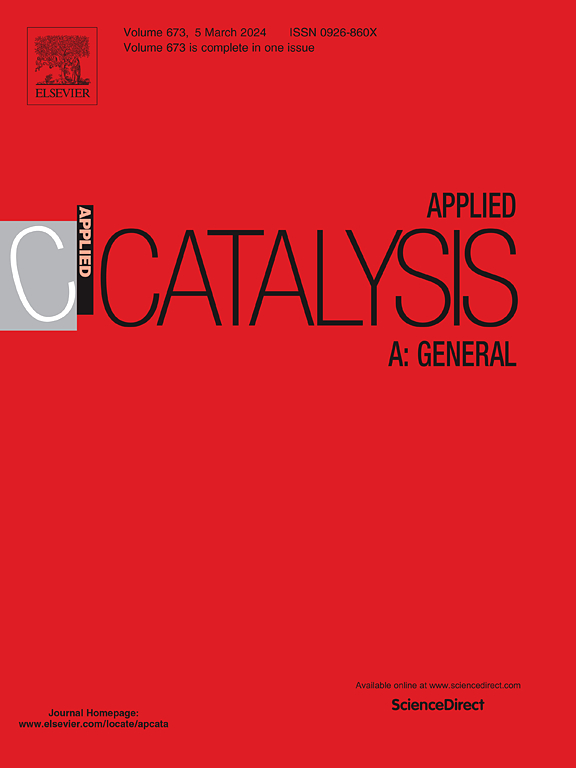Efficient cobalt-catalyzed transfer hydrogenolysis of lignin-related compounds using formic acid
IF 4.7
2区 化学
Q2 CHEMISTRY, PHYSICAL
引用次数: 0
Abstract
Cleaving the C–O bond is crucial for lignin valorization, a key biomass component. This study reports the synthesis and characterization of cobalt- and zinc-based catalysts, demonstrating high efficiency in the catalytic transfer hydrogenolysis of lignin-derived molecules using formic acid as the hydrogen source without the need for an added base like triethylamine. Depending on the thermal treatment, the materials exhibited different catalytic activities. For the material treated at 800 °C, cobalt nanoparticles were primarily observed, while at 1000 °C, no nanoparticles were detected; however, both catalysts were active in hydrogen production and in the hydrogenolysis of model molecules. We propose that cobalt species, ranging from nanometric to atomic scale, are responsible, with nitrogen-coordinated cobalt playing a critical role. The catalysts were also evaluated for their performance in the catalytic dehydrogenation of formic acid, a key step in hydrogen production. Findings indicate that carbon monoxide formation may contribute to the reduced activity observed in hydrogenolysis.
求助全文
约1分钟内获得全文
求助全文
来源期刊

Applied Catalysis A: General
化学-环境科学
CiteScore
9.00
自引率
5.50%
发文量
415
审稿时长
24 days
期刊介绍:
Applied Catalysis A: General publishes original papers on all aspects of catalysis of basic and practical interest to chemical scientists in both industrial and academic fields, with an emphasis onnew understanding of catalysts and catalytic reactions, new catalytic materials, new techniques, and new processes, especially those that have potential practical implications.
Papers that report results of a thorough study or optimization of systems or processes that are well understood, widely studied, or minor variations of known ones are discouraged. Authors should include statements in a separate section "Justification for Publication" of how the manuscript fits the scope of the journal in the cover letter to the editors. Submissions without such justification will be rejected without review.
 求助内容:
求助内容: 应助结果提醒方式:
应助结果提醒方式:


